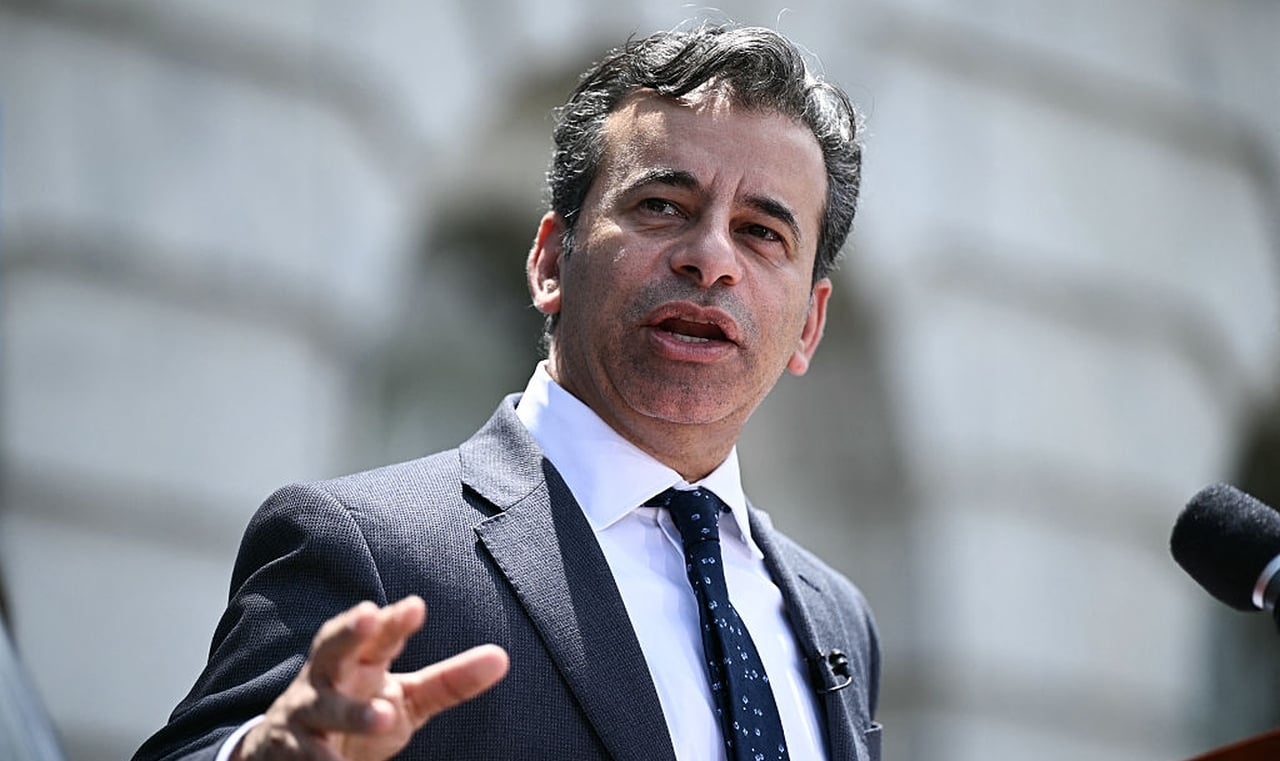As the FDA’s Commissioner’s National Priority Voucher (CNPV) program has picked up steam, with 15 companies now having secured ultrafast drug reviews, questions and criticisms about the initiative have been building beyond biopharma. With a letter to FDA Commissioner Marty Makary, M.D., two lawmakers are trying to leverage their power to answer some of those questions.
In the Nov. 20 letter (PDF), Democratic New Jersey Rep. Frank Pallone Jr. and Independent Vermont Sen. Bernie Sanders shared “deep concerns“ about the CNPV program, noting that it has not received congressional authorization. As the FDA’s new program has been laid out publicly, the CNPV initiative could “enable corruption by creating a new, lucrative gift for drugmakers and allies politically favored by President Trump,” the pair wrote.
The FDA introduced the program in June and began accepting applications in July. Shortly after, the agency announced its first and second rounds of winners, including big names like Eli Lilly and Novo Nordisk.
The CNPV program is intended to speed up the development and review of products “that are aligned with U.S. national health priorities and to enhance the health interests of Americans,” the FDA explains on its website.
Winners of CNPVs are entitled to one- to two-month reviews of product applications, with a key component of the process being a one-day multidisciplinary meeting for a “team-based review,” the agency has said.
That timeline compares with standard reviews that typically take up to 10 months from filing acceptance and traditional priority reviews, which follow a six-month timeline.
Specific priorities under the CNPV program include addressing public health crises, delivering innovative cures, onshoring supply and increasing healthcare affordability. The agency has not gone into extensive detail about these priorities, and its application page is a relatively simple entry form with a 350-word limit for the key explanation about how the applicant’s program addresses a priority.
“Experts have warned of CNPV’s potential for corruption and misuse as a tool of political favoritism given the limited information on the program, the lack of meaningful transparency about the criteria for qualifying for the CNPV, the broad scope of the announced categories, and your self-appointed role adjudicating ‘U.S. national health priorities,'” the lawmakers wrote to Makary.
Related
In their letter, the lawmakers listed 16 requests and questions for Makary about the program. They include requests for copies of CNPV agreements and communications, information about recipients, further explanation of the agency “priority areas” and CNPV reviews, plus questions about monitoring for conflicts of interest and more.
Besides corruption concerns, the lawmakers shared a worry that the program could feature “rushed reviews” and could “undermine public confidence in FDA’s decisions and raise safety concerns.”
In a statement to Fierce, a spokesperson for the Department of Health and Human Services (HHS) said the FDA will “respond directly to the members of Congress.”
“The National Priority Voucher program strengthens FDA’s ability to accelerate development of products that meet urgent public health needs,” the HHS spokesperson added. “It provides a clear incentive for investment in areas where innovation has lagged, while preserving FDA’s rigorous standards for safety and effectiveness.”
The lawmakers aren’t the only ones to raise flags about the FDA’s new program. In a recent opinion piece in Stat, several experts in government, policy and medicine wrote that the “Trump administration is turning drug review into make-a-deal.”
“A new voucher program has created procedurally reckless sprints to market for companies that curry favor with the current administration or one of the health agencies,” the op-ed authors wrote.
As the authors observed, recent CNPV winners Lilly and Novo secured CNPVs the same day their White House drug pricing deals were announced. In addition, EMD Serono’s Pergoveris was selected for the program the same day the company’s own White House agreement was announced.
“With the voucher program, we have now reached a point where science has been replaced by barter and conformity to the vague standard of ‘national health priorities’ is interpreted on the fly,” the op-ed authors continued.
In another twist, the first extra-speedy review under the program excluded career FDA drug reviewers and instead featured a vote of high-ranking officials, Stat reported last week. As the publication pointed out, the FDA has previously taken pains to avoid any potential perception of political meddling in approval decision-making.
While the CNPVs cannot be transferred, according to the agency, they certainly have the potential to hold great value for recipients. Traditional FDA priority review vouchers, which enable six-month reviews, have sold for $150 million or more this year.
Related
CNPV dissent has reportedly appeared within the FDA, as well. Friday, The Washington Post reported that the agency’s new director of its Center for Drug Evaluation and Research (CDER), Richard Pazdur, M.D., has raised concerns over the transparency of the program and its potential to be illegal. Pazdur has not raised these issues publicly, with the Post citing three people familiar with the matter.
The person Pazdur replaced in the CDER position, George Tidmarsh, M.D., Ph.D., abruptly resigned several weeks ago and raised his own concerns about the program afterward in an interview with The New York Times. Notably, his resignation came after the FDA started an internal probe of his personal conduct, an HHS spokesperson said at the time.
The CNPV initiative comes amid a stretch of significant turbulence at the FDA, raising questions about the agency’s capabilities and priorities. Last week, a large group of industry leaders and stakeholders wrote to Makary with concerns about the FDA’s “ability to function.”
Citing “continued gaps in institutional memory and accountability” at the FDA, plus delays and other erratic behavior, the industry stakeholders voiced fears that “increased volatility in an inherently high-risk business will reduce overall investment in biomedical innovation, or divert it to other nations.”
“FDA must be an effective institution that can be counted on to say what it means and mean what it says, even when personnel change at the top, in the middle, or on the front lines,” the biopharma leaders added.
